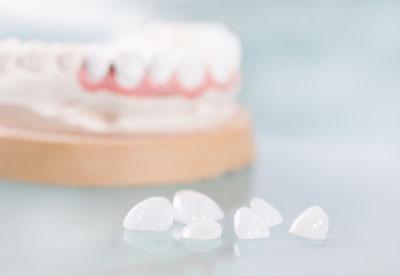 In our Marietta dental office, we use root canals and crowns to save teeth that have become infected or injured. While root canals are typically associated with a tooth that has become severely infected and is sore, they are also performed when a root has become damaged due to dental trauma. Understandably, when a tooth is damaged in a car wreck, sporting accident, or workplace injury, the exterior of the tooth will show the damage but the interior (roots) may be irritated as well. This is one reason that we take x-rays when a dental trauma has occurred. We need to see what is happening inside of the tooth so that we can take it into consideration and address it during the course of the treatment.
In our Marietta dental office, we use root canals and crowns to save teeth that have become infected or injured. While root canals are typically associated with a tooth that has become severely infected and is sore, they are also performed when a root has become damaged due to dental trauma. Understandably, when a tooth is damaged in a car wreck, sporting accident, or workplace injury, the exterior of the tooth will show the damage but the interior (roots) may be irritated as well. This is one reason that we take x-rays when a dental trauma has occurred. We need to see what is happening inside of the tooth so that we can take it into consideration and address it during the course of the treatment.
The Process of Getting Root Canals and Crowns After an Accident
After examining your tooth and determining the best course of treatment, we will numb the area. Next, a small hole will be created in the tooth so that we can remove the infected portion of it. If your root canal is not to remove an infection, but to smooth out the root, we can do that as well. The key is to visit an experienced dentist that knows how to access the interior of the tooth with minimal disruption to it. Once done, we will seal up the hole with a rubber-like substance. This will prevent anything from entering the tooth and at times we will recommend a course of antibiotics as a precautionary measure. Next, we will begin the process of restoring the tooth.
Before a crown can be placed, the tooth must be prepared. This is done by removing a portion of the enamel from around the tooth so that when the cap (crown) is placed, it does not disturb the surrounding teeth. To prevent any unnecessary discomfort, our Marietta dentist office will provide you with medication and numb the area first. Afterwards, you can expect to feel some discomfort and sensitivity. This can typically be controlled with ibuprofen. Since it takes time for the dental lab to create a crown, we will place a temporary crown around the tooth to prevent anything from touching it. This is secured in place using a removable, water-based glue, so it is important to be careful with what you eat and how you eat to prevent it from slipping out of place. Once the permanent crown is ready, you will come back in for it to be bonded in place. You will then be able to eat like normal.
Recovering From Root Canals and Crowns
The process of root canals and crowns is easier and more comfortable than ever before. Still, this is a major procedure that changes the tooth. Keeping that in mind, you should prepare to experience some level of irritation and take ibuprofen to feel better. You can also use a cold compress to reduce any swelling. You will want to be careful with what you eat for a few days while your teeth are getting used to the crown. For example, you may not want to eat something that requires biting down with excessive force. This, however, is only temporary, and you will be back to normal in short order.
Related Posts
When Root Canal Therapy May be Recommended
It is important to see your general dentistry office twice a year for regular cleanings and checkups and to make sure you do not need any procedures like a root canal. The …
Reasons to Consider a Root Canal
A root canal treatment can restore a severely decayed or damaged tooth. This invasive procedure can help improve your dental health. Knowing why you need this treatment can motivate you to schedule …
Tips for Root Canal Aftercare
A root canal is a dental technique devised to treat infection or damage within the pulp (the innermost chamber) of the tooth. While the procedure has a reputation for being painful, thanks …
3 Signs You May Need a Root Canal
Dentists use root canals to save teeth that are badly infected. Sometimes, due to damage or decay, the inner part of the tooth becomes infected. However, the tooth may not have to …





